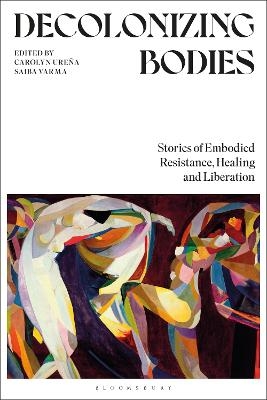
Decolonizing Bodies
Bloomsbury Academic (Verlag)
978-1-350-37488-1 (ISBN)
- Noch nicht erschienen (ca. Januar 2025)
- Versandkostenfrei innerhalb Deutschlands
- Auch auf Rechnung
- Verfügbarkeit in der Filiale vor Ort prüfen
- Artikel merken
The volume powerfully demonstrates how racism and colonialism sediment in bodily and habitual registers that are active, ongoing, made and remade. Bodies, the contributors argue, powerfully register the impacts of colonial and racialized violence, but through practices of embodiment, they also digest, expel, and transform them. In centering non-normative subjective experiences and making space for different kinds of embodied knowledge, Decolonizing Bodies also takes a step toward decolonizing academic knowledge.
This exciting and urgent book offers readers new ways of imagining, choreographing and enacting the body. Beyond connecting distant geographies of harm, it celebrates polymorphous decolonial repertoires that record, creatively narrate, and heal.
Carolyn Ureña is the Director of Academic Advising in the College of Arts and Sciences at the University of Pennsylvania, USA. Saiba Varma is Associate Professor of Anthropology at the University of California, San Diego, USA.
Acknowledgements
Introduction
Part I: Decolonizing Research
Kali (tongues) by Bhasha Chakrabarti (2016-2020)
Complex Connections: Coloniality, Embodiment, and Children of Color in the Archives – Isabelle Higgins, University of Cambridge, UK
Burnout: A Queer Femme of Color Auto-Ethnography - Alexia Arani, California Polytechnic State University, San Luis Obispo
Part II: Decolonizing Collectives
The Intertwining I by Bhasha Chakrabarti (2022)
Existing Beyond Time and Place: Understanding Queer Muslim Visibilities Online- Mardiya Siba Yahaya
Decolonized Bodies of Land and Children: Sarah Winnemucca’s Landback Project in Life Among the Piutes- Kristine A. Koyama, University of Wisconsin-Milwaukee, USA
Embodying Azadi: Conscious and Unconscious Womanhood in Indian occupied Kashmir- Inshah Malik, New Vision University, Georgia
Fragments contain Worlds: Encounters between Narrative Practice and Filmmaking - Xiaolu Wang & Poh Lin Lee, University of Melbourne, Australia
Part III: Sovereignties, Autonomies, Liberation
Sowing Seeds by Bhasha Chakrabarti (2018)
“Ele gosta do samba resguardo” (“He likes a rough samba”): Ceremonial embodiments of Bahian Candomblé Caboclo – Mika Lior, York University, Canada
A Garden in a Lake of Im/Possibility – Saiba Varma
Quyca chiahac chixisqua (Sowing ourselves in the territory): embodied experiences of Indigenous urban gardens and the coloniality of nature - Andrea Sánchez-Castañeda (Florida International University, USA), Erika Nivia, and Jorge Yopasá (Muysca Indigenous community of Suba).
Notes on Contributors
| Erscheint lt. Verlag | 23.1.2025 |
|---|---|
| Verlagsort | London |
| Sprache | englisch |
| Maße | 156 x 234 mm |
| Themenwelt | Geschichte ► Teilgebiete der Geschichte ► Wirtschaftsgeschichte |
| Sozialwissenschaften ► Soziologie ► Gender Studies | |
| ISBN-10 | 1-350-37488-1 / 1350374881 |
| ISBN-13 | 978-1-350-37488-1 / 9781350374881 |
| Zustand | Neuware |
| Haben Sie eine Frage zum Produkt? |
aus dem Bereich


